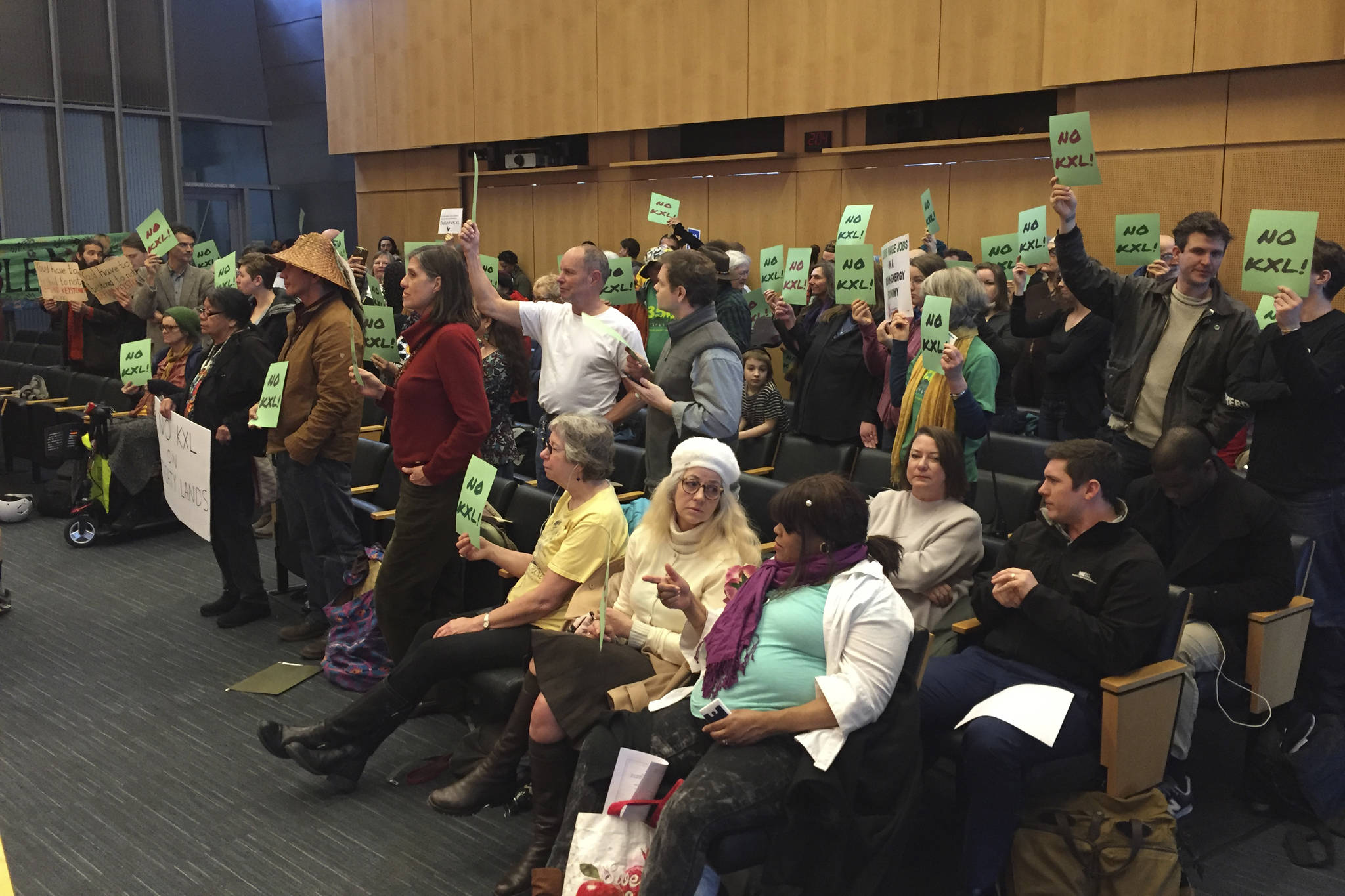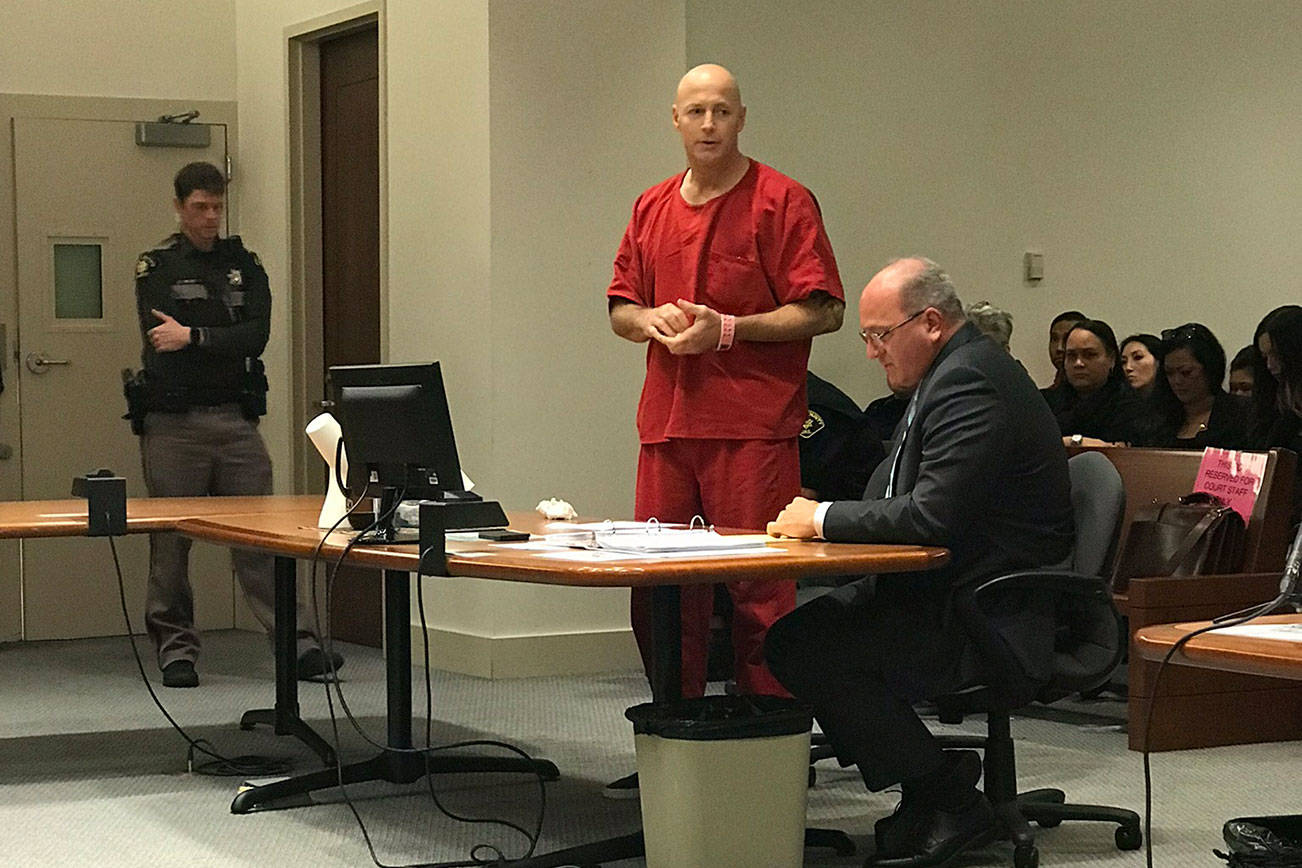Roughly a month after the Seattle City Council and Mayor Ed Murray unanimously approved an ordinance to divest $3 billion from Wells Fargo seemingly due to its financial ties to the Dakota Access Pipeline project, the council is poised to vote on another pipeline-inspired resolution this coming Monday. This one would direct the city to avoid hiring any lender that has financed the Keystone XL Pipeline, which was recently given the green light by President Trump.
But this isn’t the slam-dunk that some might expect. While the approval of the DAPL resolution—which was publicly framed as a blow to the oil industry and banks who invest in it—was followed by mutual back-patting from city leaders soaking up political points scored with environmentally conscious constituents in progressive Seattle, some city councilmembers and City officials are hesitant to write-off oil-friendly banks by supporting this new resolution. Their concern: the legislation will hamper the City’s ability to find a new private bank to replace Wells Fargo.
So what happened?
Last Friday, Trump granted a construction permit to the Canadian energy corporation TransCanada to begin construction of the Keystone XL Pipeline project: a proposed expansion of an oil pipeline network that would transport crude oil from Alberta’s tar sands through Midwestern plains states to refineries in the gulf.
Local activist Matt Remle—a Standing Rock Sioux tribal member who authored the Seattle Indigenous Peoples’ Day Resolution and who lobbied hard for the Wells Fargo divestment ordinance—and 350.org organizer Alec Connon quickly authored a resolution for the city council to battle back against the order. Remle said that he and Connon felt that “[Trump’s] signing off on Keystone deserved an immediate response.”
The resolution, which was delivered to the office of Councilmember Kshama Sawant, directed the City’s Department of Finance and Administrative Services (FAS) to develop criteria to avoid contracting with banks that have provided credit to the pipeline project. Sawant’s office rubber stamped it and last Monday morning the resolution was passed on to her colleagues with the intention of getting it added to the full council agenda and voted upon that day.
That’s not what happened. Instead, the move was met with resistance from other councilmembers who felt blindsided by Sawant’s last-minute move. Councilmember Sally Bagshaw (District 7–Queen Anne and Downtown) said she felt “steamrolled” while councilmember Debora Juarez (District 5–North Seattle), one of the co-sponsors of the Wells Fargo ordinance, said she needed more time to look over the resolution. At-large Councilmember Tim Burgess said that he was concerned the City’s ability to find a new bank based off feedback he had received from FAS staff. “In initial comments back it is very clear that this language will have a direct impact on our ability to secure banking services in the future,” he said during the briefing. (District 4 Councilmember Rob Johnson, representing Wallingford and the University District, later told PubliCola that he had similar concerns.)
Later, during the full council meeting—which was well-attended by pro-divestment activists holding “No KXL!” signs and banners—Council President Bruce Harrell (District 1–Southeast Seattle) opted to push a vote on the resolution to this coming Monday while Sawant publicly endorsed holding off to give her colleagues and FAS staff time to review the legislation.
A staffer in Sawant’s office told Seattle Weekly that, while Juarez’s office has made minor adjustments to some of the language in the resolution, the substance of it remains the same as it heads to a full council vote on Monday. The Mayor’s Office declined to comment, deferring to FAS, who declined to comment until they had reviewed the final draft of the resolution.
The whole kerfuffle exposes the fractures within city hall regarding how far local leaders are willing to take the City’s oil divestment efforts, but it is also a sign of the limitations of the original Wells Fargo ordinance.
The Wells Fargo ordinance, while stating the council’s opposition to the Dakota Access Pipeline in the preamble, cited something else as the primary reason for severing the City’s relationship with the firm: last year’s revelations that Wells Fargo employees had opened two million fake credit card accounts for its customers without their consent. While including no further language about investments in oil infrastructure, that ordinance did require that the City not give out contracts to vendors that engage in “unfair business practices,” defined as a “pattern” of behavior identified by a relevant state or federal agency to be “discriminatory, deceptive, fraudulent, or abuse.” This criteria does not include firms that finance oil projects. The ordinance does give a nod to social justice concerns, directing that “socially responsible banking and fair banking practices performance” on the part of applying firms be factored into the city’s selection of a new bank. But the environment? Nada.
There might be good reason for that.
Councilmember Burgess, a co-sponsor of the Wells Fargo ordinance, told Seattle Weekly that he doesn’t think he can support Sawant’s resolution—which names 17 different major banks as culpable in providing financial services to TransCanada, including Citibank and JP Morgan Chase—because of its potential impact on the city’s ability to contract a bank.
“As written, we would basically be signaling to the banking industry that we don’t want to bank with any of you, which puts the city in a very tough spot,” said Burgess. “I don’t see grounds for us to take this kind of sweeping position especially when that might harm city government’s long-term interest.”
Burgess also cited limitations in state law on who the City can hire for its banking business; statutes prohibit any government entity from depositing more than $250,000 of public funds in a credit union and require that for-profit financial firms have substantial capital reserves to take on government banking projects. A bill that would lift the restrictions on governments contracting credit unions has passed out of the Democrat-controlled House in the State Legislature; it now sits in committee in the Republican-controlled Senate.
“I’m not sure it can be fixed to my satisfaction,” Burgess added. “If the resolution restated our opposition to the Keystone Pipeline and that’s all, I would have no trouble supporting that.”
It’s unclear whether Sawant has the votes for the resolution. During Monday’s council briefing, councilmembers Harrell and O’Brien indicated that they were in Sawant’s corner. Councilmembers Johnson and Juarez did not respond to requests for comment, while Bagshaw, the other councilmember who has made her hesitance to support the resolution clear, will be out of town next Monday for the vote. Councilmembers Lorena Gonzalez (at-large) and Lisa Herbold (District 1–West Seattle) were absent for last Monday’s briefing and the full council meeting.
“I would say wait until Monday and see what the vote is; that will speak for itself,” said Remle when asked about the contrast between councilmembers’ past support for the Wells Fargo ordinance and hesitation to Sawant’s resolution. If they vote no, “that’s their legacy, they have to live with that” he said.
“We’re [the Native American community] unfortunately kind of used to that; issues impacting tribal communities, impacting tribal sovereignty, are back burner at best, and are not even on the radar at worst,” Remle added. “Whether or not they take a strong stand, we’ll keep pushing forward; it’s all we can do.”
jkelety@seattleweekly.com








